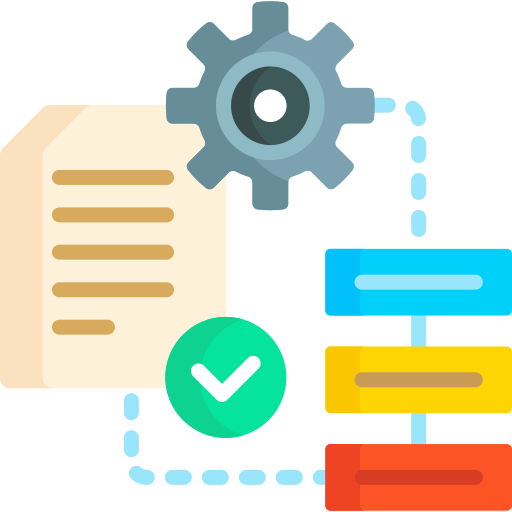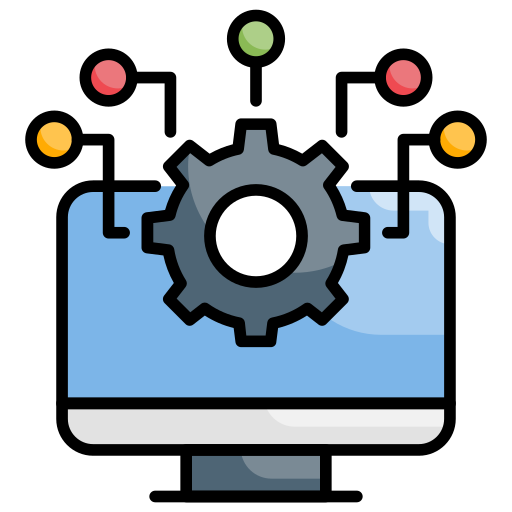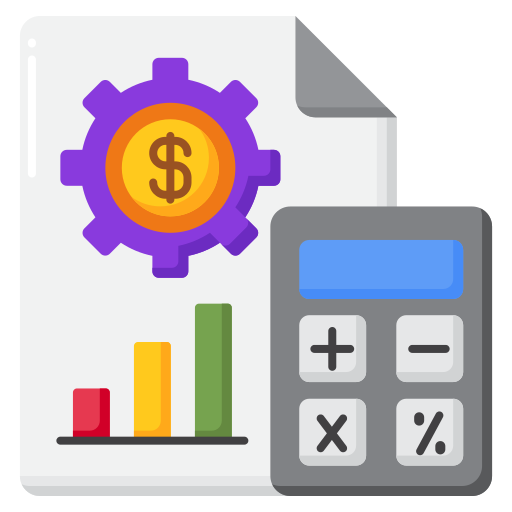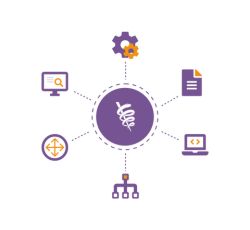Medical Coding (ICD, CPT)
Medical coding refers to the procedure of converting diagnoses, procedures, medical service, and other forms of medical equipment into a standard coding process. Most applications have those of medical billing, insurance, and record maintenance. Among the two top systems that find their way into the process is ICD and CPT.
ICD Codes classify diseases and health conditions, whereas CPT Codes describe medical, surgical, and diagnostic procedures. Both are used together to ensure proper billing and reimbursement from insurance providers.
Importance of Medical Coding
Medical coding is one of the most critical professions in the healthcare industry due to several factors:
- Correct Billing : It rules out the wrong billing errors, which might eventually lead to claims being denied or paid after an unacceptable amount of time.
- Insurance Companies' Reimbursement: Accurate coding guarantees that health care providers get the appropriate funds from the insurance companies.
- Healthcare Analytics Support : Standardized coding helps the researcher and policymakers analyze health trends, thus making appropriate resource allocation.
- Improves Patient Care : Proper coding leads to proper documentation of the medical histories, thus ensuring better treatment and follow-up for the patients.
Legal Compliance: Proper coding ensures that a healthcare provider complies with the government regulation so as not to incur penalties.
Understanding ICD and CPT Coding
- ICD Codes (International Classification of Diseases)
ICD Codes are the number codes that assign a patient diagnosis. ICD-10 code, in place now has an alpha-numeric number code as assigned for coding various diseases and illnesses.
Example Code
E11.9, Type 2 Diabetes Mellitus without complications;
J45.909, Unspecified Asthma, Uncomplicated;
The assigned codes enable this classification for research purposes and filing claims for insurance programs.
- CPT Codes (Current Procedural Terminology)
Physician, surgical or any other diagnostic and screening services received from their providers can be represented through CPT codes. This is coded in the American Medical Association.
Some Illustrative CPT Codes:
99213 – office Visit for Established patients (level middles) 93000 Interprets an ECG/CMT
So, CPT code helps make it uniform by codifying health treatments for any compensation through health cover.
Benefits of Medical Coding
Medical coding is important in the healthcare industry as it ensures that medical services are documented and billed appropriately.
1. Improves Revenue Cycle Management
Medical coding helps healthcare providers get paid on time. When doctors treat patients, they need to send claims to insurance companies to receive payments. If the codes are correct, insurance companies process payments faster, reducing delays and improving cash flow.
2. Efficiency of Hospitals and Clinics
This use of standard codes allows a hospital or clinic to manage records of patients more efficiently. The amount of paperwork gets reduced, thus giving doctors and nurses more time for patients rather than administrative work.
3. Avoiding Fraud and Abuse
Correct coding ensures that valid claims only go to the insurance company. This keeps away fraud in the system like overbilling and charging for unwanted services, which may cause some legal cases.
4. Medical Research and Public Health
Medical coding enables the monitoring of diseases and trends in health. For example, if several patients are diagnosed with a specific disease, the information gained from coding enables experts to follow the trend and come up with better treatment solutions.
5. Assures Adherence to Codes
Governments and insurance firms have put out certain stringent codes regarding medical billing. With appropriate coding, the medical practitioner would comply with all those regulations thereby avoiding any type of penalty or fines.
Medical Coding Challenges
While the practice has numerous advantages for medical professionals, there are several drawbacks, too.
1. Mistakes and Errors in Coding
Minor mistakes in medical codes lead to denial of claims or delay in payment. The incorrect codes can lead to compliance problems or penalties.
2. Inconsistent Coding Standards
ICD and CPT codes usually get updated annually. This means medical coders have to continuously learn and upgrade their skills. It is necessary but not easy to keep updating continuously.
3. Denial of Insurance Claims
In case of misalignment of medical codes with policy provided by the insurance company, claims get rejected and delayed; hence the rejections increase documentation work associated with it.
4. Regulatory Compliance
Healthcare providers need to follow strict rules regarding coding and billing. Non-compliance with regulations will give space for audits, penalties, or legal punishments.
.png_1743080281.png)
Services Offered by Meru Accounting in Medical Coding
1. Assignment of ICD and CPT Code
We make sure that the ICD and CPT coding of diagnosis and procedure provided by the doctors is accurate, which guarantees smooth billing, allows for the avoidance of claim rejections, and ensures timely payment for services from insurance firms to the healthcare providers. Our experts keep themselves updated on the latest coding guidelines to ensure accuracy and compliance.
2. Claims Review and Error Correction
We check each claim before submitting it to the insurance companies to identify and rectify any coding errors. Small errors may lead to rejection or underpayment of claims, which may pose a challenge to healthcare facilities in terms of finances. Our coders ensure all codes are within the insurance standards, hence having minimal chances of rejection and ensuring maximum approved claims.
3. Coding Audits and Compliance Checks
Regular coding audits ensure compliance with the healthcare regulations. We conduct an in-depth audit to identify errors, outdated codes, or other discrepancies that may cause penalties. Compliance checks by us ensure that a medical facility adheres to the industry standard and avoids risks of legal and financial nature. Keeping coding under control helps maintain a good reputation of healthcare providers.
4. Automated Coding Solutions
We use advanced medical coding software that increases accuracy and efficiency. Manual coding is labor-intensive and prone to errors, but with automation, we reduce human mistakes and speed up the billing process. Our automated solutions allow healthcare providers to focus on patient care while we handle the complex coding procedures in the background.
5. Training and Consultation
Right training in the field of medical coding is very essential for healthcare professionals and is required for any administrative staff in any organization too. We will run classes with advisory services for medical practitioners regarding the training about the current best practices to code, latest up-to-date data regarding ICD and CPT codes, as well as documentation knowledge. Through such guidance under experts, accuracy related to billing could increase, which could decrease rejection claims to a considerable extent.
Conclusion
Medical coding is one of the main components in the healthcare industry that ensures proper billing, insurance reimbursement, and regulation compliance. ICD and CPT codes are very helpful in the standardization of medical documentation to increase efficiency and reduce errors. Healthcare providers can make their billing operations easy and quick with Meru Accounting. Our team allows them to focus on the quality provision of patient care. By emulating the best practices of professionals and acquiring professional coding services offered by Meru Accounting, it will give physicians simplified billing operations and more compliant and improved patient care.
Our Bookkeeping And Writeup Process

Your Need
Search the Service You need

Enquiry
For enquiring make a call or mail us

Confirm
Get your Quote and confirm us

Stay Calm
Feel free and Relax Yourself

Effective budgeting and forecasting are crucial elements of strategic financial management, offering a structured pathway to business success.
Read MoreStarting a new business is exciting and it’s full of opportunities and challenges. At Meru Accounting, we understand the complexity involved and we provide comprehensive Business Start-Up ...
Read MoreCost control and reduction strategies are important elements of any organization's financial management structure. In the competitive marketplace, businesses must precisely manage their expe...
Read More
Due diligence services refer to a set of investigative procedures and assessments conducted by professionals, typically in accounting, finance, law, or consulting fields, to evaluate a business,...
Read More
Risk management is a crucial process employed by organizations to identify, assess, and prioritize potential risks that could hinder their objectives.
Read More
Business Process Optimization (BPO) is a strategic approach aimed at enhancing efficiency, reducing costs, and improving overall performance within organizations.
Read More
Financial restructuring is a strategic process that involves reorganizing a company’s financial framework to improve its stability and performance.
Read More
Although launching a business is an exciting endeavour, there are risks and difficulties associated with it. Effective financial management is essential to the success of every start-up, and it ...
Read More
Performance and improvement consulting is pivotal for businesses seeking to optimize operations and achieve sustainable growth.
Read More
Forensic accounting is a specialized area of accounting that involves investigation of financial records to detect fraud, theft, or other financial crimes.
Read More
Software implementation is a vital phase in the lifecycle of any software application. It involves a series of steps designed to ensure that the software is correctly installed and configured to...
Read More
Project accounting is a specialized branch of accounting that focuses on tracking and managing the financial aspects of a specific project throughout its lifecycle.
Read More
In the modern business environment, companies are increasingly recognizing the importance of nurturing not just the professional growth but also the financial well-being of their employees.
Read More
Handling accounts payable is an essential part of managing a business’s finances. It involves tracking and paying invoices, maintaining good vendor relationships, and ensuring cash flow re...
Read More
Medical billing plays a very central role in the healthcare area.
Read More
Patient registration is the first and the most important when a person steps into a hospital, clinic, or any medical facility.
Read More
Insurance verification is among the most integral steps in medical billing. Before providing even a single health service,
Read More
Medical coding refers to the procedure of converting diagnoses, procedures, medical service, and other forms of medical equipment into...
Read More
Claim submission is one of the key processes in health care because this ensures that service providers get remunerated on time.
Read More
Payment posting would be one of the most significant steps in any medical billing cycle so that healthcare providers will get paid for...
Read More
Denial management is one of the important processes in medical billing because it makes sure that the providers of health services...
Read More
Reporting and analytics are crucial parts of medical billing. They will help healthcare providers follow up on the financial performan...
Read More

